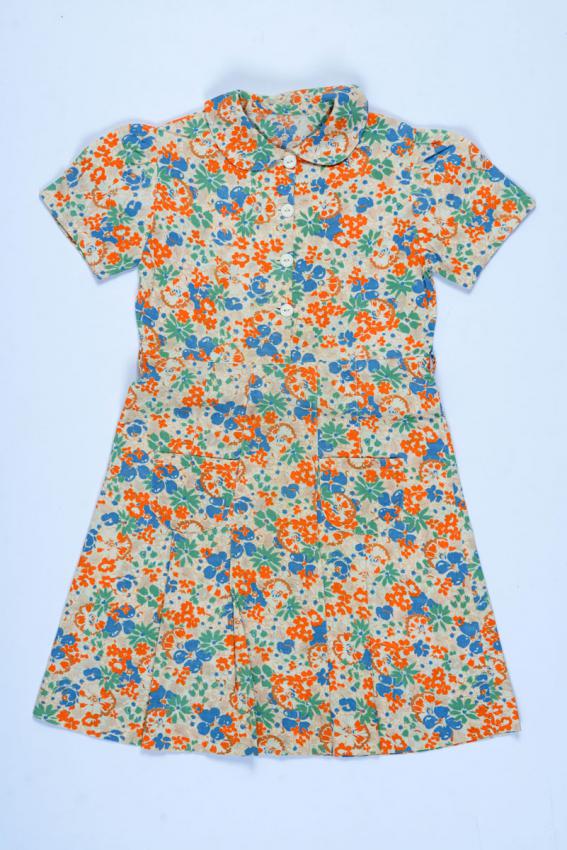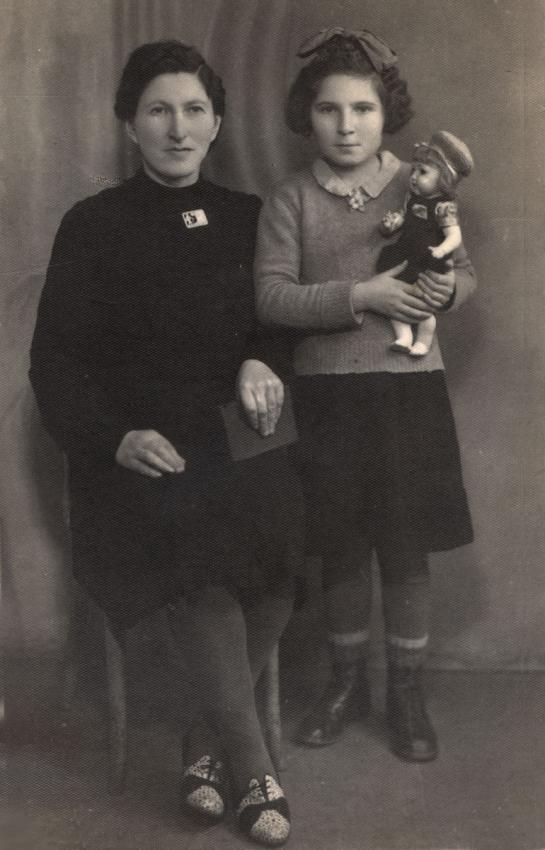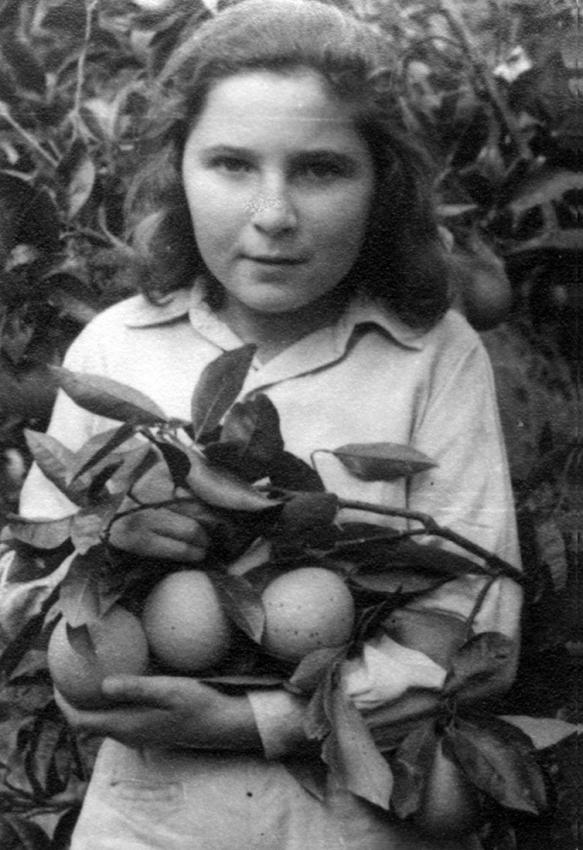Basia Klig was born in January 1935 in Pruszkow, Poland, the only daughter of Leon and Hava Klig. The Kligs made their living from a kitchenware shop that included items that Leon, a skilled artisan, made from tin and enamel.
When war broke out, Leon was sent to forced labor in the town while Hava and four-and-a-half year-old Basia, were deported to the Warsaw ghetto. After a while, Leon succeeded in joining them and the three of them escaped from the ghetto and reached Lublin. Due to the hardship and starvation in the city, they moved to various villages, but Leon eventually became overwhelmed by living on the run, and in 1942 he committed suicide.
In the summer, Hava and Basia continued hiding in the fields and piles of hay, and in the winter, they moved into abandoned buildings and pigsties. Their clothes disintegrated into rags and instead of shoes, they wrapped their feet in newspaper. They finally found shelter with Stanislawa Pacek , who hid them on her farm until liberation. After liberation, Hava and Basia stayed with Stanislawa, continuing to work for her out of a desire to repay her for hiding them. It was at this time that Stanislawa bought the dress for Basia – her first article of clothing after the war.
In the summer of 1945, Basia and Hava returned to Pruszkow to see if anyone from their family had survived, but following the pogrom in Kielce, Hava decided that they should leave and make their way to Eretz Israel (Mandatory Palestine). As a first step they moved to Lodz, where Hava worked in the kitchen of Chasia Bornstein's children's home, but she became ill and returned to Pruszkow.
Basia made her way with a group of children that boarded the ship "Theodor Herzl" but the Ma'apilim (illegal immigrants) were deported to detention camps in Cyprus. Eventually, twelve-year-old Basia arrived at Kibbutz Gan Shmuel. Hava succeeded in coming to Israel only in 1956, after her requests for a permit to leave Poland had been refused for ten years. Mother and daughter were finally reunited when Basia was 21 years old.
Basia safteguarded her precious first new garment after liberation as a symbol of her new life, and as a tribute to the woman who saved her life and the life of her mother.
On February 7, 1995, Yad Vashem recognized Stanisława Pacek and her sons Leszek Pacek and Jerzy Pacek as Righteous Among the Nations.
Yad Vashem Artifacts Collection
Courtesy of Batya (Basia) (Klig) Golan, Kibbutz Gan Shmuel, Israel












